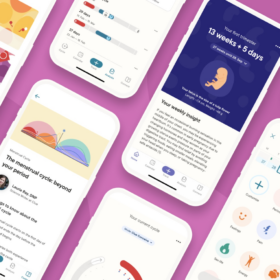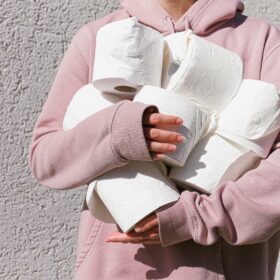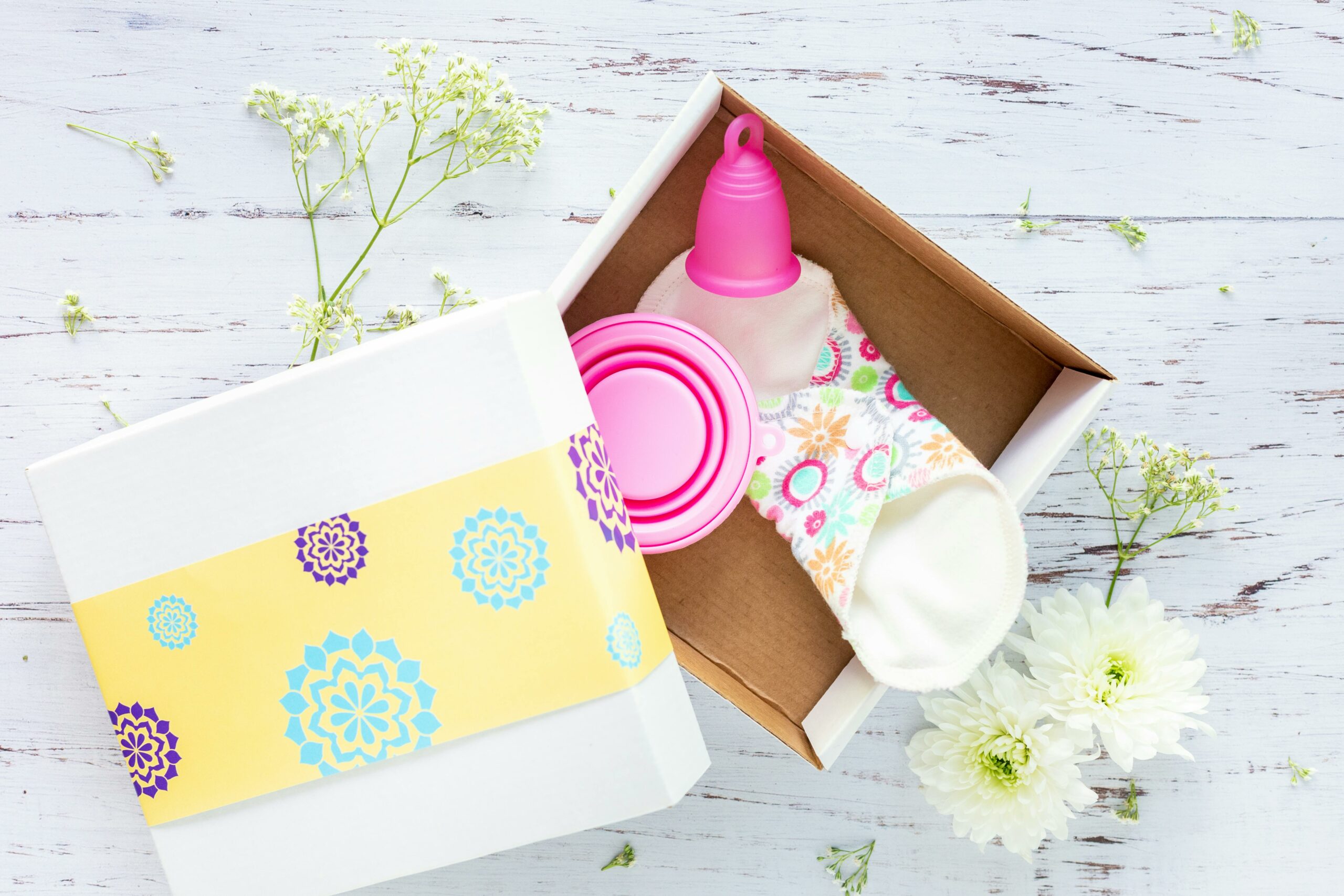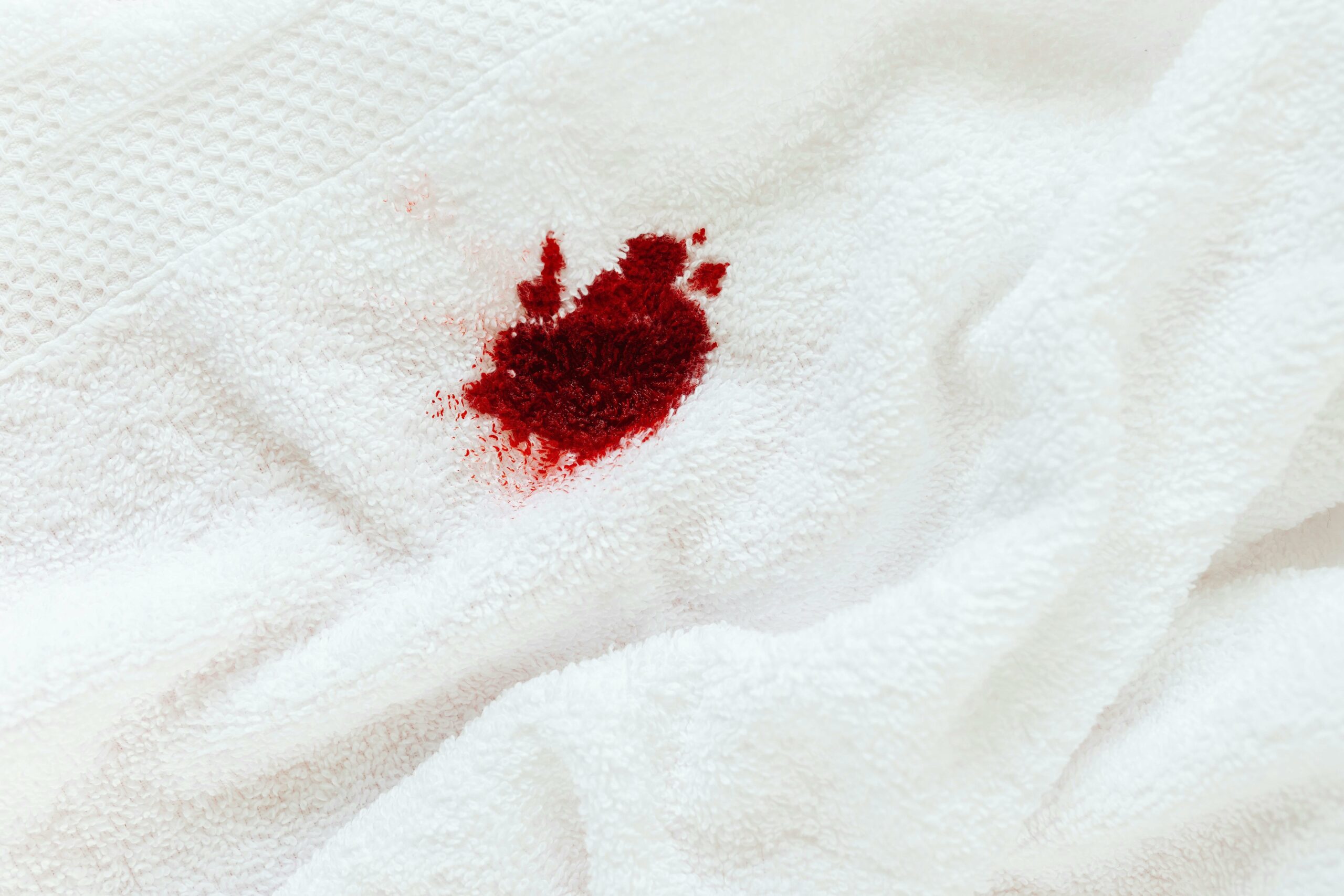
Postpartum periods: What to expect after giving birth
In this article
What's the lowdown?
After giving birth, you will experience a bleed called lochia which is different from your first period after delivery
Post-delivery periods can restart as early as 5-6 weeks
Your fertility can kick in again 3 weeks after delivery
When does period start after birth?
After birth, if it is a vaginal delivery, instrumental delivery or caesarean section you will experience postpartum bleeding called lochia. Postpartum bleeding and postpartum periods are not to be confused.
Lochia is the shedding of your womb lining after birth which is a combination of mucus, tissue and blood. It can last anywhere from 2 to 6 weeks. It usually starts off bright red or brownish red and slowly darkens, eventually looking creamy yellow near the end. Lochia can stop and start, where you think it is about to stop, only for it to start up again or become heavier for a few days. This is a general guide to what a lochia is like. As we all know, our bodies are unique so your lochia experience might be different1. It’s important to seek help if your lochia changes and becomes offensive smelling, green in colour or becomes much heavier with clots as this could represent a problem.
It is hard to give you an exact time when you will get your first period after birth. It is dependent on how you decide to feed: bottle or breast feeding.
Exclusive breastfeeding
If you are purely breastfeeding and doing it regularly, you might not resume your period after birth until you reduce the frequency of breastfeeding or stop it altogether. Prolactin is a hormone that influences breast milk production but also suppresses ovulation. So no ovulation = no periods2. However, everyone’s hormonal threshold is different, and even if you are exclusively breastfeeding, your periods may still return after only a few weeks, or other’s may not have a period for a year or more after birth.
Some women decide to use this as a contraceptive method called Lactational Amenorrhoea Method (LAM). While this method is technically 98% effective, 3 specific criteria need to be met for it to be effective which are outlined in our breastfeeding and contraception article3.
Mixed or bottle feeding
If you are combining breastfeeding with bottle feeding or just bottle feeding, you might notice your first menstrual period after birth within 5-6 weeks of delivery2.
First menstrual period after birth
Your period after birth might not snap back to your normal periods. You have had a 9 month period hiatus with your hormones taking a joy ride, so while these stabalise back to pre-birth levels, you might notice2:
- Irregular periods
- Less or more painful cramping
- Heavy periods
- Period blood clots
Irregular periods after birth are not abnormal as your hormones are still fluctuating as they stabalise to pre-birth levels. A heavy period after giving birth might be noticed while breastfeeding as the hormones involved in breastfeeding makes your womb contract.
Large period blood clots (over the size of 10p), periods lasting longer than a week, heavy periods or signs of infection like offensive smelling or green coloured blood should be checked by your midwife or GP.
Can you get pregnant after giving birth, before your period starts?
Having sex post-baby is up to you, no one can tell you when to resume your sexual relations. We’ll leave that completely up to you and when you feel comfortable to have sex again.
However, you might be surprised to hear that you can get pregnant as early as 3 weeks after giving birth, despite exclusive breastfeeding or if your periods have restarted. Yes, 3 weeks! And remember you ovulate 2 weeks before you have a period so you can even get pregnant without having a period4.
So we always advise to use protection or contraception.
Contraception can be started either straight after birth or at various points after birth. Breastfeeding and other factors about your health will need to be considered by your healthcare professional when choosing your method. Contraception after birth can be tricky, so we have an article just for that!
Signs of ovulation after giving birth
Ovulation signs after birth are the same as before pregnancy. You might notice a rise in basal body temperature, thinner and stretchy cervical mucus, ovulation pains, tender breasts and an increase in sex drive5. However, with the hurdles that motherhood throws at you, you might not notice these signs as you’re pre-occupied with little one (or ones!)
Period products after pregnancy
While having your lochia, or for 6-weeks post delivery, any internal period products are discouraged. So tampons after pregnancy are not a good idea, neither are menstrual cups. The area where the placenta has attached to the womb wall is still healing and you might have cuts and tears around the vagina. So any internal foreign products can increase the chance of an infection. Pads or period pants are safe to use, though the absorbancy needed might differ based on your lochia or period heaviness6.
Summary
You are probably tired of hearing this, but since every pregnancy is distinctive, what you experience will be different from someone else or your other pregnancies. Your periods might not quite bounce back to ‘normal’ ASAP, it might take some time to normalise. As you will agree, your body and hormones have been through a lot! Give your body some time to settle down, but keep a lookout for red flags like large blood clots, heavy periods or long periods.
When it comes to contraception post-baby, the answer is not quite so straightforward. What is the best contraceptive for you can only be decided based on your situation, preference and medical background. To make the choice easier for you, take our contraception quiz to help you narrow down the options.
Our medical review process
This article has been medically reviewed for factual and up to date information by a Lowdown doctor.






